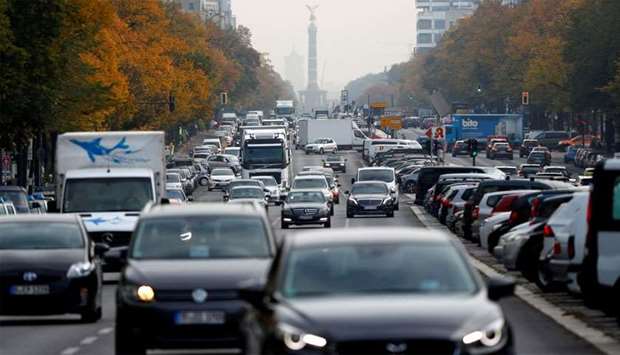Diesel drivers in Berlin faced the prospect of bans from major arterial roads as a court Tuesday ordered the German capital must follow in the footsteps of Hamburg, Frankfurt and Stuttgart with exclusion zones.
A renewed focus on air quality in the wake of Volkswagen's 2015 ‘dieselgate’ scandal -- in which the car giant admitted to cheating regulatory tests on 11 million cars worldwide -- has seen a wave of courtroom action across Germany.
‘The current clean air plan does not include sufficient measures to meet annual limits for nitrogen dioxide (NO2),’ the Berlin judges said.
To bring down levels of the harmful pollutant, city authorities ‘must order a driving ban for the streets where the threshold is not met,’ targeting vehicles up to the Euro 5 emissions standard.
Definite exclusion zones include 11 stretches of major arteries like the north-south axis Friedrichstrasse and the east-west Leipziger Strasse.
Meanwhile, the city-state's government must also examine whether driving bans are needed to bring down NO2 levels on a further 15 kilometres (nine miles) of road in 117 different sections -- a tiny fraction of Berlin's total 5,343 kilometres of streets.
Authorities must produce a new version of their clean air plan implementing the court order by March 31.
After that, ‘driving bans must be implemented within two to three months,’ the judges said.
But they allowed officials the option to appeal the decision to a higher Berlin court.
Port city Hamburg has already closed stretches of two major roads to older diesels, while Porsche and Mercedes-Benz base Stuttgart will ban them from much of its territory from next year.
Judges also recently ordered a ban in the city centre of Frankfurt, Germany's financial hub that sees an influx of tens of thousands of commuters each day.

